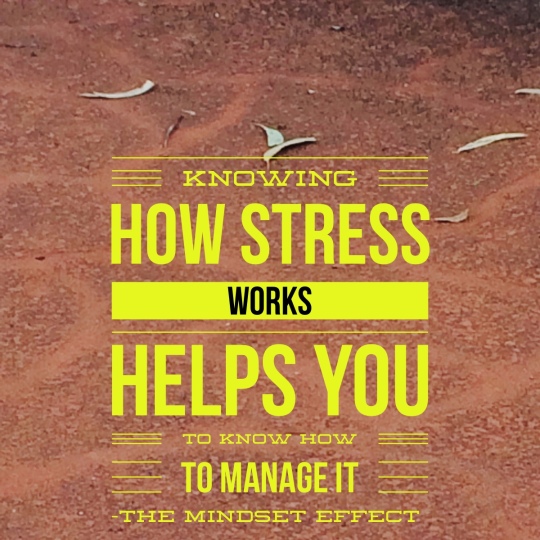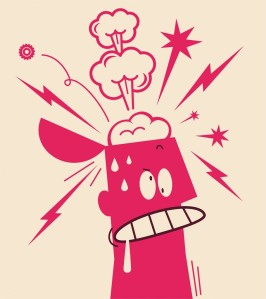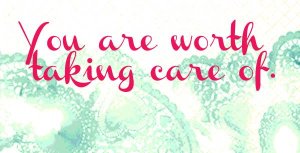Sleep. Do you get enough of it? In all likelihood, probably not. At least not if you’re anything like me!
I’m excited to have Linda back with us as she has some amazing insight and skills. She has graciously offered to share a series of articles over the next 3 days on sleep, while I am attending a conference (and probably not getting much of it!).
The first article will provide some technical information on how the sleep process works. The second will cover why sleep is so important and its relationship with stress. Finally, the third article will discuss some very practical tips on how you can gain control, better regulate your sleep and support your wellness. I hope you enjoy them and learn a lot. 🙂
———————————————————————–
“And if tonight my soul may find her peace in sleep, and sink in good oblivion, and in the morning wake like a new-opened flower, then I have been dipped again in God, and new-created” – D.H. Lawrence
Did you know that we spend approximately one third of our lives sleeping? Sleep is another one of those amazing functions that many of us take for granted, until we find ourselves unable to get to sleep or waking at 2am every morning.
Unfortunately stress can have a very negative impact on your ability to sleep well and when you don’t sleep well you are more likely to feel stressed!
Today we are going to have a look at what happens inside your body when you sleep and the healthy sleep cycle. In part 2 tomorrow we will outline why sleep is important, and how stress effects sleep. And the day after we’ll look at a bunch of strategies for you to improve your sleep.
The human brain is a complex organism, so some of what we are talking about here is going to be technical. I have tried my best to simplify explanations as much as possible to make it easier for you to understand, however it is still quite a long piece, my apologies in advance.
I have also included some links to other websites that provide even more detailed explanations for those of you who relish the details and love to sink your teeth into the technical workings of the brain and body.
What happens during sleep?
Did you know that some parts of the brain actually work harder when you are sleeping than during waking hours?
When I talk to people about relaxation often they will say that they relax when they are asleep. This is not actually true because your brain does most of the important work during sleep. And this is why deliberately engaging the relaxation response while you are awake is essential. You can learn more about engaging the relaxation response in the post on ‘Stress and the Role of Breathing’.
Sleep is actually quite a complex process involving at least two systems in your body.
The Biological Clock and Circadian Rhythms
In terms of sleep, each and every cell in your body has its own little clock, a cellular clock, how neat is that? Each cellular clock is regulated by a master biological clock sitting in the region of the brain called the hypothalamus. Your cellular clocks drive your circadian rhythm, a 24 hour cycle of physiological and behavioural processes.
Circadian rhythms are responsible for all kinds of essential functions in your body including body temperature regulation, the sleep-wake cycle, and hormone production and release. Remember that hormones are just like chemical couriers, they travel throughout your body delivering essential messages for optimum functioning.
Your circadian rhythms are very easily disrupted, especially by stress. When your circadian rhythms become disrupted, your hormone production and your sleep-wake cycle will be impacted.
Sleep-Wake Homeostasis
At the same time you have something called sleep-wake homeostasis going on. In this process throughout the day the body produces sleep-regulating substances that drive you to want to sleep. The longer you are awake the stronger your desire to sleep. One of the better understood sleep substances produced by your brain is called Adenosine. This is important as we know that stimulants like caffeine and nicotine actually block Adenosine from working.
While researching sleep I came across a terrific, easy to understand site that explains the science of sleep in more depth if you would like to further your learning http://healthysleep.med.harvard.edu/healthy/matters
What does healthy sleep look like?
Understanding the ‘sleep architecture’, or the pattern of healthy sleep, has always seemed confusing to me. However it is important to grasp, particularly if you are experiencing sleep disturbance as disrupted sleep does appear to underlie many other problems including depression.
I have tried to make this as easy as possible for you to make sense of, although you may need to read through it a few times to really understand what goes on in the nocturnal hours.
We have two types of sleep: non-REM (rapid eye movement) sleep and REM sleep.

In non-REM sleep there are four different stages:
Stage 1
During this stage your transition into sleep begins, usually lasting around 5 minutes.
Stage 2 or light sleep
Now your eye movements stop, your body becomes still, this stage lasts anywhere from 10-25 minutes.
Stages 3 & 4 deep sleep, or slow wave sleep
In these stages it becomes difficult for someone else to wake you and you will feel groggy and disoriented if you are woken. Your brain waves become quite slow as the blood flow is directed away from your brain towards your muscles. Stage 3 & 4 sleep is absolutely essential as this is the time when your body is working on healing and repairing anything physical that isn’t functioning properly. If you have injuries or illness, then your body needs to experience these stages properly.
And finally, during REM sleep, or dream sleep, many of your physiological responses actually increase. Your brain waves speed up, your eyes move rapidly, your heart rate increases, your breathing becomes rapid and shallow and your blood pressure increases. During REM sleep for most of us our arm and leg muscles become paralyzed. Ever felt physically trapped in a dream? Well now you know why, for most of us during this stage your body is trapped. REM sleep can last for around 70-90 minutes. Most importantly, during REM sleep, your brain is actually repairing the mind while also consolidating memories and new learning from that day. Amazing stuff, hey?
In one night you may cycle between these stages anywhere from 4 – 6 times while you are sleeping.
A word on sleeping tablets:
While every single stage in the sleep cycle is important, Stage 3 & 4 sleep and REM sleep are clearly essential for healing, repair, and cognitive functioning. And this is where sleep medications cause problems and why they often do more harm than good. Sleeping tablets actually prevent you from entering Stage 3 & 4 sleep and REM sleep.
The most common form of sleep medication is the benzodiazepine, you may be more familiar with the brand names Valium, Xanax, Temaze, Rohypnol, Serapax, Ativan, Mogadon, or Rivotril.
Also, benzodiazepine use is more likely to result in what is known as rebound day-time anxiety, meaning that your HPA axis has been stimulated, increasing the likelihood that you will be caught up in that negative stress cycle. And it is highly addictive.
Avoid the use of sleeping medication if you can, if you really need to take it do so sparingly, maybe for 2 to 3 nights only and then have a few days break. If you are already taking sleep medication DO NOT suddenly stop taking it as this can also cause dangerous reactions. Always discuss medical options with your general practitioner or medical specialist.
—————————————————————————-
 Linda is an AHPRA registered psychologist and relationship counsellor with offices located on the Gold Coast. She has worked in mental health since 1994. Since that time, following a long and often trying journey, particularly given that she had not completed secondary school, she achieved a Bachelor of Arts in Psychology, a Diploma of Counselling, a Graduate Diploma of Adult Education and a Post Graduate Diploma of Psychology. Linda now enjoys specializing in helping couples to learn how to value their best asset, enabling people suffering from dementia to move forward in their lives, and supporting people who have experienced work-place injury in their recovery. She also has a passion for assisting people to heal from stress, anxiety and depression.
Linda is an AHPRA registered psychologist and relationship counsellor with offices located on the Gold Coast. She has worked in mental health since 1994. Since that time, following a long and often trying journey, particularly given that she had not completed secondary school, she achieved a Bachelor of Arts in Psychology, a Diploma of Counselling, a Graduate Diploma of Adult Education and a Post Graduate Diploma of Psychology. Linda now enjoys specializing in helping couples to learn how to value their best asset, enabling people suffering from dementia to move forward in their lives, and supporting people who have experienced work-place injury in their recovery. She also has a passion for assisting people to heal from stress, anxiety and depression.
Linda values openness, authenticity, and acceptance in her work as a psychologist. She is a big believer in the power of the mind and recognizes that in many instances it is the activity within our minds that contributes to our psychological distress. Linda views the brain as an amazingly powerful organ: she is passionate about understanding how the brain functions and what each of us can do to maximize the brains potential.
You can find out more about Linda at www.eastqldcounselling.com.au.















